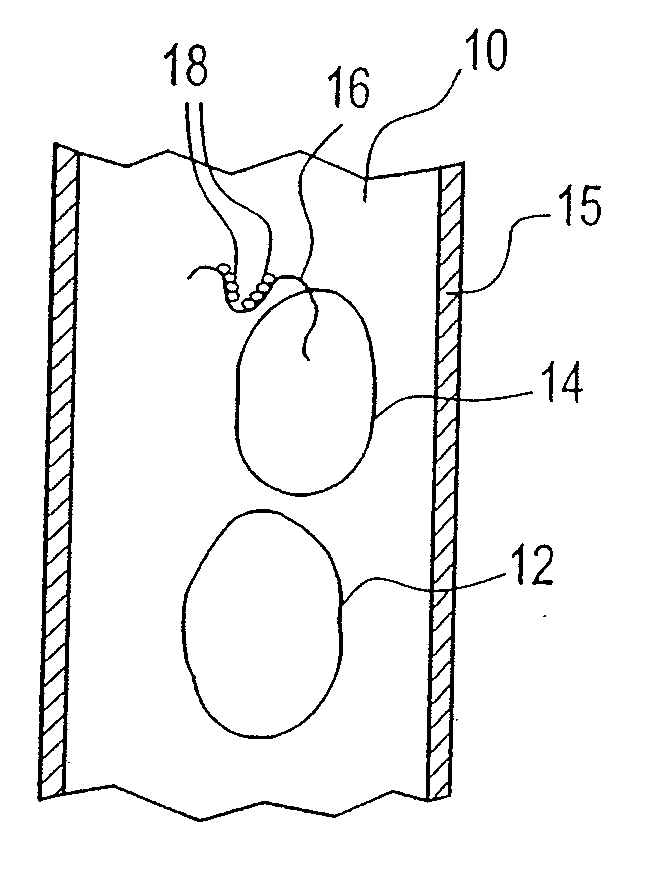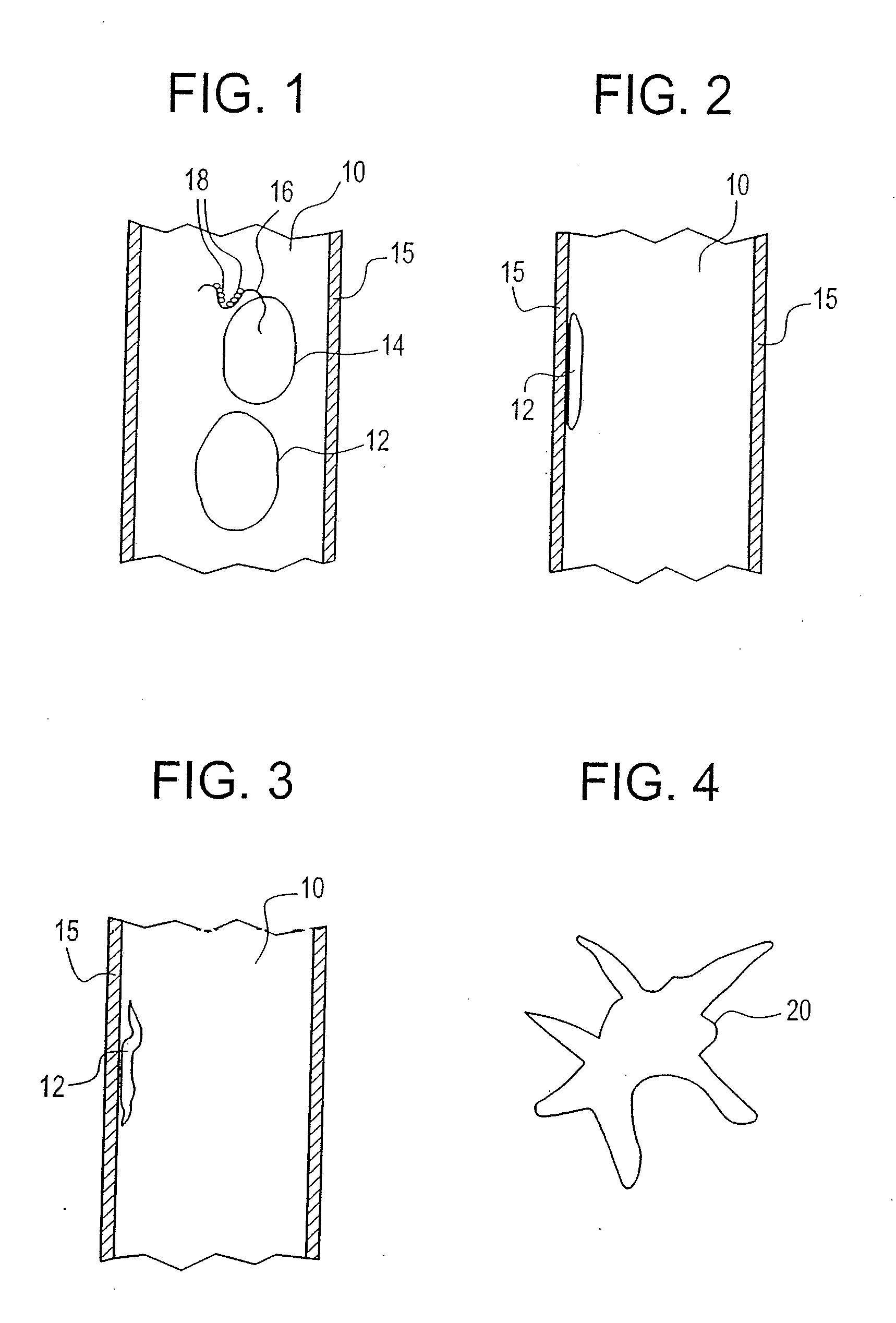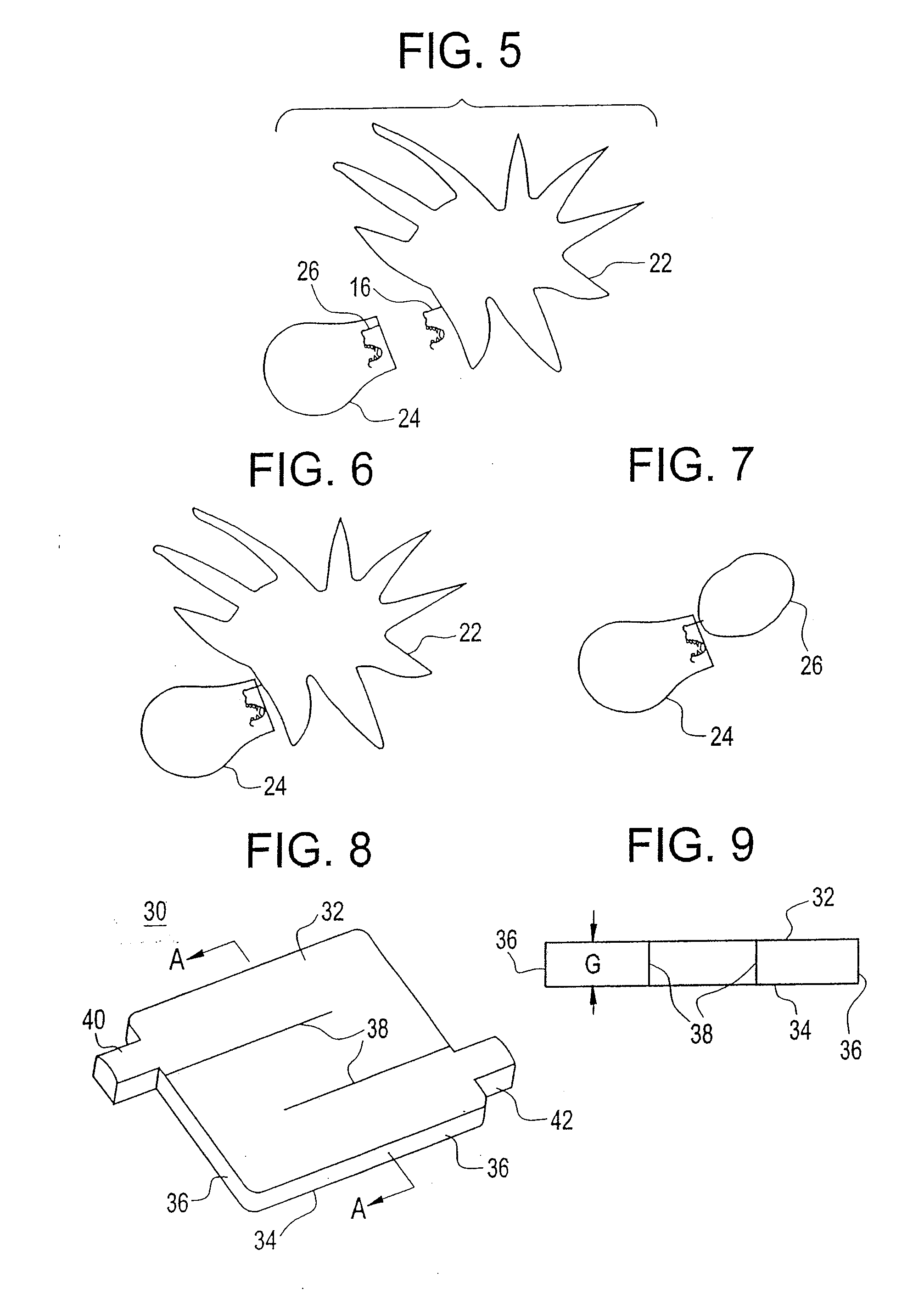Methods for inducing the differentiation of blood monocytes into functional dendritic cells
a technology of dendritic cells and blood monocytes, which is applied in the field of inducing the differentiation of blood monocytes into functional dendritic cells, can solve the problems of individual's own inability laborious and expensive, and the inability of the procedure to produce and present multiple tumor antigens, and the individual's own problems
- Summary
- Abstract
- Description
- Claims
- Application Information
AI Technical Summary
Benefits of technology
Problems solved by technology
Method used
Image
Examples
example
[0044]An example of the embodiment described above is provided. It is desirable to produce and reintroduce to the patient a necessary number of mature dendritic cells, induced from processing of the particular patient's monocytes in the plastic treatment device. The positive impact of the sequential layering onto the plastic surface of the necessary components, followed by the elution of the incipient DC, can be more effectively accomplished by modification of resident times in the plastic treatment device, variation of flow rates through the plastic treatment device and control of when the ultraviolet energy is turned on or off to render disease cells apoptotic.
[0045]In conventional photopheresis, the flow rate is constant and the lights are on for the large majority of the blood processing. In the embodiment described above, after the extracorporeal blood is separated into three components or fractions (plasma, platelets and buffy coat), the plasma fraction is first be allowed to ...
PUM
 Login to View More
Login to View More Abstract
Description
Claims
Application Information
 Login to View More
Login to View More - R&D
- Intellectual Property
- Life Sciences
- Materials
- Tech Scout
- Unparalleled Data Quality
- Higher Quality Content
- 60% Fewer Hallucinations
Browse by: Latest US Patents, China's latest patents, Technical Efficacy Thesaurus, Application Domain, Technology Topic, Popular Technical Reports.
© 2025 PatSnap. All rights reserved.Legal|Privacy policy|Modern Slavery Act Transparency Statement|Sitemap|About US| Contact US: help@patsnap.com



